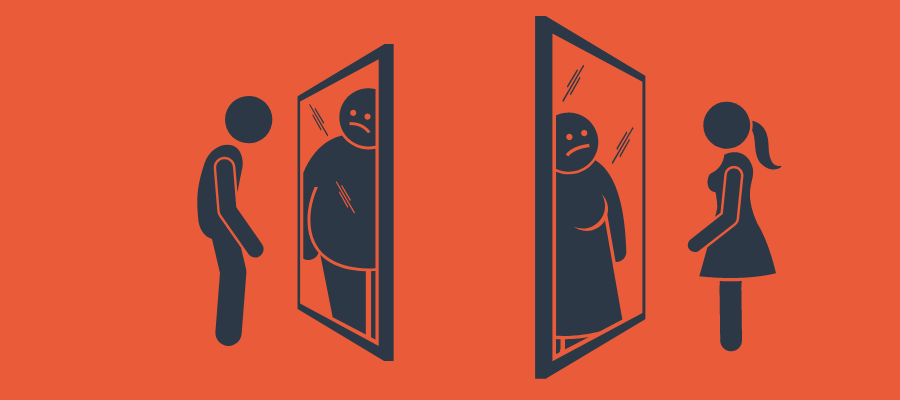A Quick Guide
The mental depiction of oneself that an individual generates is referred to as their body image. A person’s mental depiction of their body, or view of self, may or may not correspond with their physical appearance. A person’s view of self can be distorted in a variety of ways by their parents’ attitudes, other early experiences, internal factors like emotions or moods, and other things. The extreme version of negative view of self is termed as Body dysmorphic disorder. It is characterized by intense fixation over a tiny or invisible flaw in appearance. Here we’ll be discussing the term body image, what it really means, and how it affects you.
Understanding Body Image
Your view of self is influenced by your internal dialogue and the tone you employ while discussing or thinking about your appearance, both positively and negatively. Body image can be defined as the mental picture one forms of one’s body as a whole, including its physical characteristics and one’s attitudes towards these characteristics.
Regarding your body, how do you feel? When you glance in the mirror, what do you see? Do you perceive flaws? See any strength? Do you sense gratitude? Do you feel guilty? Find yourself getting frustrated? Do you think you’re capable? Your view of self is shaped by these thoughts.
Negative Body Image
Negative view of self is frequently characterized by dissatisfaction with one’s appearance and the engagement in behaviors such as dieting, checking, and/or avoidance in an effort to alleviate the unhappiness with one’s look. It is often developed in childhood. Negative view of self is a result of the unattainable beauty standards that are placed on both women and men in today’s society when it comes to appearance.
A poor perception of one’s body might also result in eating problems such as;
Anorexia: A diagnosis of anorexia nervosa is also consistent with a disturbance in how one’s body weight or shape is experienced, or with an inability to recognize the importance of the current low body weight. Both of these factors are associated with anxiety and depression.
Effects of negative body image
There is also a connection between having a negative view of self and the likelihood of developing an eating disorder, which is one of the most serious mental and medical disorders that occur in conjunction with having a negative view of self. The following are the effects of a negative body image:
- Depression: Negative view of self can be a contributing factor in the development of depression and feelings of self-hatred.
- Self-harm: In extreme cases, this can also lead to tendencies toward self-harming behavior.
- Eating disorders: The presence of a negative view of self is another factor that can contribute to the development of a variety of eating disorders.
- Low self-esteem: A negative view of self can have a negative impact on your self-esteem, which can lead to low self-esteem.
- Self-hate: A negative image of one’s body can lead to feelings of hatred toward oneself.
Key Takeaways
Body image refers to the mental representation of oneself that an individual forms during their lifetime. One’s quality of life might be negatively impacted by having a negative view of self. It is critical for an individual to be aware of how they perceive themselves and also how this perception is influencing their day-to-day lives.



 Healing Your Inner Child: A Short Guide
Healing Your Inner Child: A Short Guide  What You Need to Know About Trauma & its effects
What You Need to Know About Trauma & its effects  Dealing with a Narcissistic Parent: Strategies and Support
Dealing with a Narcissistic Parent: Strategies and Support  Understanding the MBTI Personality Types
Understanding the MBTI Personality Types  Understanding the Big Five Personality Traits
Understanding the Big Five Personality Traits  Self-esteem: What is it and how it affects you
Self-esteem: What is it and how it affects you